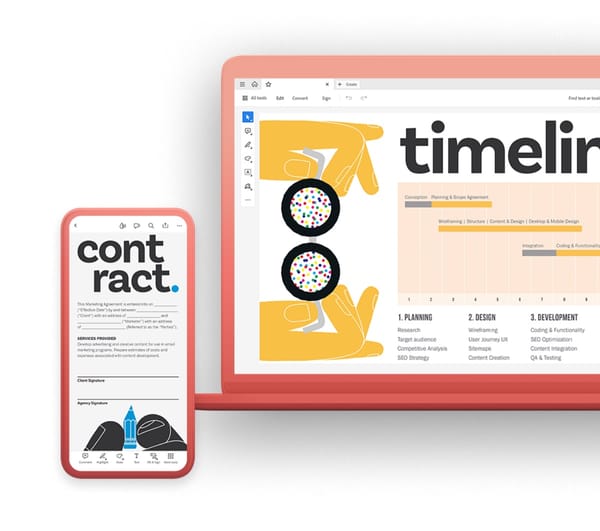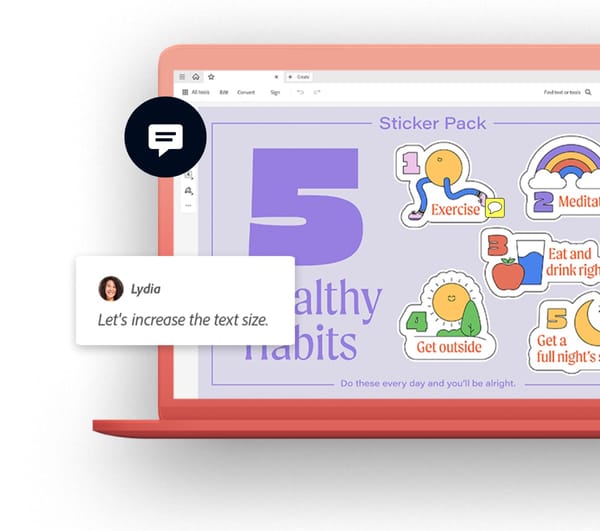What Files Can Adobe Acrobat PDF Pack Handle?
In today's document-driven world, the ability to seamlessly convert, combine, and manage files across various formats is crucial. Adobe Acrobat PDF Pack, a suite of online PDF tools, aims to simplify this process, but understanding what file formats it supports is essential for maximizing its potential. Let's delve into the diverse formats Adobe Acrobat PDF Pack can work with, both for input and output.
Inputting Files for Conversion and Combination
- Microsoft Office Suite: Breathe new life into your Word documents (DOC, DOCX), Excel spreadsheets (XLS, XLSX), and PowerPoint presentations (PPT, PPTX) by converting them to versatile PDFs. This ensures their formatting and content remain intact across different platforms.
- Text Formats: Plain text files (TXT) and Rich Text Format (RTF) documents are readily welcomed by PDF Pack. Whether it's notes, transcripts, or simple instructions, you can easily transform them into searchable and sharable PDFs.
- Image Formats: Capture the essence of visuals by converting images in various formats like BMP, JPEG, GIF, TIFF, PNG, and more into PDFs. This is perfect for creating visual reports, presentations, or product catalogs.
- PostScript and EPS files: If you're working with professional design elements, PDF Pack can handle PostScript (PS) and Encapsulated PostScript (EPS) files, preserving their high-quality vector graphics for further use.
Exporting Files for Further Use
- Microsoft Office Compatibility: Need to edit your PDF content later? No problem! Export your PDFs back to editable Word, Excel, or PowerPoint formats, maintaining the original layout and structure as much as possible. This is particularly useful for collaborative projects or making minor adjustments.
- Rich Text Format (RTF): If you prefer a simpler text-based format, exporting your PDF to RTF allows you to retain basic formatting like bold, italics, and paragraphs while ensuring compatibility with various text editors.
- Compressed PDFs: Reduce file size without compromising quality by exporting your PDFs in compressed formats. This is ideal for sharing large documents via email or online platforms without exceeding storage limits.
Beyond Basic Formats
- Optical Character Recognition (OCR): Even scanned documents or PDFs with embedded images aren't off-limits. PDF Pack employs OCR technology to convert them into editable text formats, making them searchable and reusable. This is especially helpful for reviving old archives or repurposing printed materials.
- Cloud Integration: As part of the Adobe Document Cloud, PDF Pack seamlessly integrates with other Adobe services like Dropbox and Google Drive, allowing you to directly import and export files stored there, streamlining your workflow.
Things to Keep in Mind
While PDF Pack supports a wide range of formats, it's crucial to remember:
- Conversion accuracy: Depending on the complexity of the original file and the chosen output format, some formatting or layout elements might not be preserved perfectly. It's always recommended to review the exported file for any discrepancies.
- Specific limitations: Certain features within specific formats might not translate perfectly during conversion. For example, complex Excel formulas might require manual adjustments after exporting to the XLSX format.
- Paid features: Converting PDFs to PowerPoint format is only available with a paid Adobe Acrobat PDF Pack subscription.
In Conclusion
Adobe Acrobat PDF Pack offers a robust set of tools for working with various file formats, empowering you to convert, combine, and export documents seamlessly. From basic text files to complex image-rich PDFs, you have the flexibility to work with formats commonly used in different industries and scenarios. Understanding the supported formats, along with their potential limitations, allows you to leverage PDF Pack's capabilities effectively and enhance your document management workflow.


